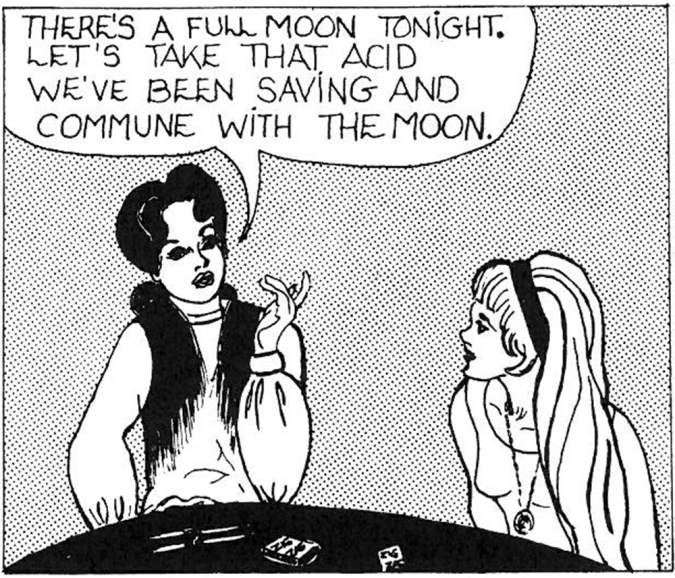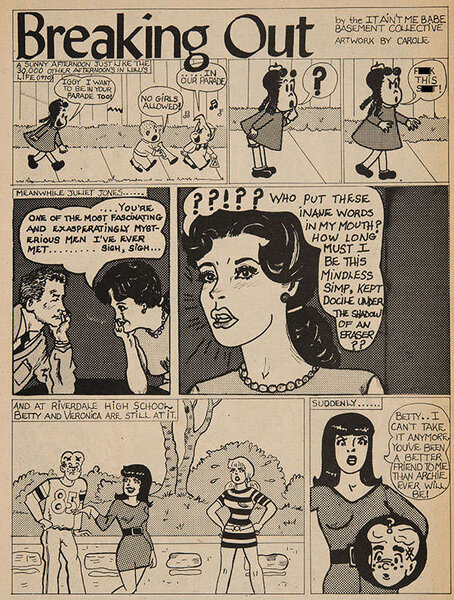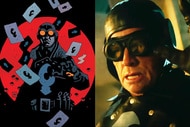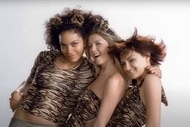Create a free profile to get unlimited access to exclusive videos, sweepstakes, and more!
Looking back on It Ain’t Me Babe with comix icon Trina Robbins
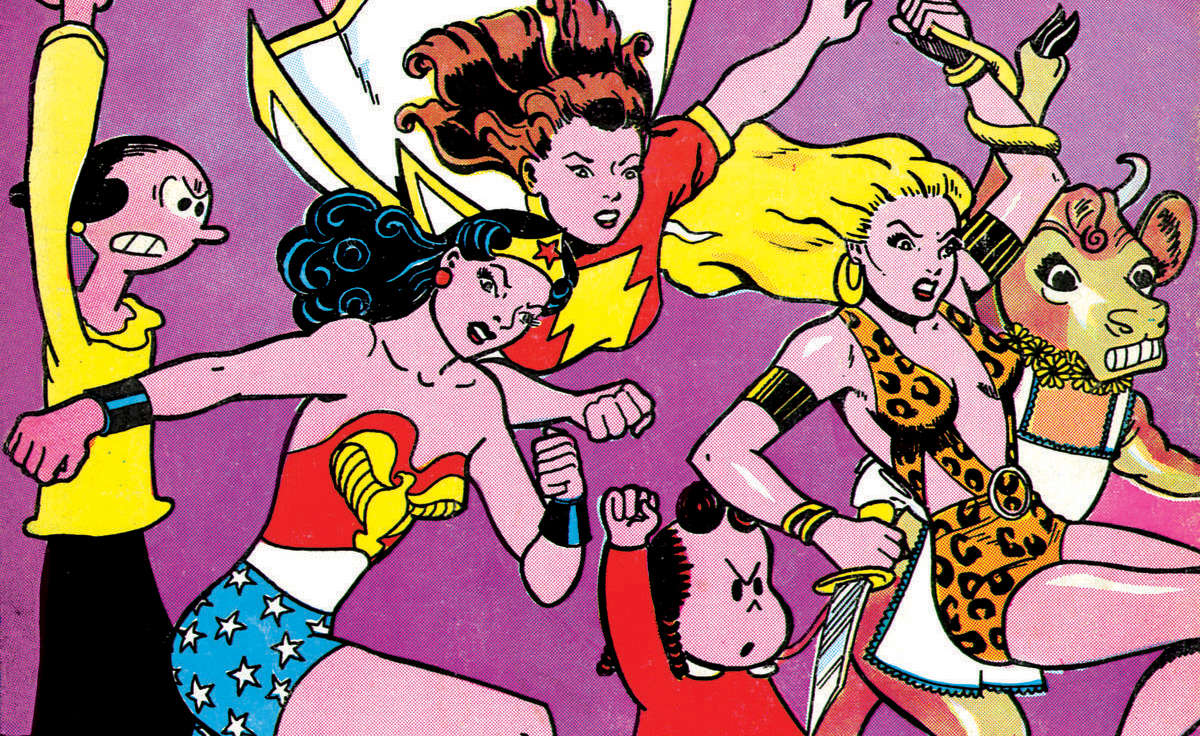
In 1967, a number of women's liberation groups were slowly being formed in major cities throughout the United States as second-wave feminists mobilized in their continued fight for equal rights. It had been 10 years since the FDA approved the birth control pill and seven years since the Equal Pay Act passed, but women still lacked the same rights that their white male counterparts enjoyed. They were fed up with sexism in the workplace, at home, and in their romantic relationships. They spoke out against the sexual harassment and abuse that was often met with little more than a proverbial shrug by law enforcement and government. And most importantly, they began what would become a decades-long fight for the government to cease its regulation of their bodies. By January of 1970, one of the groups, Berkeley Women's Liberation, started what many consider to be the first feminist newspaper called It Ain't Me, Babe.
Shortly after, a young burgeoning underground cartoonist named Trina Robbins was handed the paper's inaugural issue and instantly knew she wanted to be part of it. She had recently returned to San Francisco from New York's Lower East Side with her then-boyfriend and fellow underground cartoonist, Kim Deitch. The underground comics scene the two had become a part of seemed to be taking off on the West Coast, and the opportunities for work far superseded anything back east. Well, at least they did for Kim. Trina, however, was increasingly overlooked and iced out from the tight-knit boys club at the center of the comics industry. But underground newspapers were a different story, and Robbins was drawing cartoons and covers for It Ain't Me, Babe soon after reading that first issue. By July of the same year, she produced an all-female created spin-off comic of the same name, making it the first feminist and women-fronted comic book ever.
July 2020 marked 50 years since the release of that book. Trina Robbins is 82 and still lives on the West Coast. The Eisner Hall of Famer has continued to leave an indelible mark on both mainstream and indie comics ever since. When we speak via Zoom, she's sipping coffee from a Rosie the Riveter mug in a room full of books and knickknacks, each item undoubtedly serving as a memento from some amazing story in her life, of which she has no shortage. She speaks softer than I expected, especially for someone who's made a career of being a strong voice for women. She excitedly shows me the cover to her new book The Flapper Queens: Women Cartoonists of the Jazz Age, a curated collection of work by female cartoonists in the 1920s. When she's not working on comics, she's working on books about them, or at least about the women who made them ever since having an epiphany: "If you're not written about, you don't exist."
I mention how parts of It Ain't Me Babe Comix still resonate today. "Nothing has changed," she answers matter of factly. "I hear young women in the comics industry talking about the male-dominated industry and the awful things that guys do. Alas, that has not changed either." She tells me about Lily Renee, a Golden Age cartoonist Robbins has written about and who today is 99 years old. "This was the '40s, war years, and she says in the beginning, she was the only woman working in the bullpen drawing, and she says it was awful, because these sexual allusions just used to go all the way around the room, all these sexual remarks, and she says that sometimes she cried herself to sleep at night. It was that bad."
But as many women know, that kind of boys' club attitude didn't stay in the last century. "More recently, like two years ago, I was talking to a woman who has been doing animation for this company. She was the only woman in the room, and she told me that it was awful because of all these sexual hints and allusions that went around the room from the guys. So it's like nothing has changed."
Almost on cue, she sips from her mug and continues, "Women in comics are so strong, and they're so aware of this, of the fact that it still is not an even playing field. I mean, I'm on a couple of Facebook groups with women in comics, and the sexual harassment is amazing. Not to mention the trolls who can't stand to see women in their club. You know 'it's my club. You can't come in.' I mean, that hasn't changed since Little Lulu, for god's sake."
She should know. In her 2017 autobiography Last Girl Standing, Robbins recalls similar moments during her own career while at East Village Other's Gothic Blimp Works. But the misogyny she and other women in the industry experienced only further fueled their ideology and creative work.
"Here these guys were treating me like I was invisible," she says. "They just wanted me to go away. One of the real driving forces can be 'I'll show them.' That's how it was with me. I'll show them." And show them she did, eventually. "Well, it didn't really open any doors in the male comics industry. I mean, it didn't change anything. But I certainly met more women, and what was incredible is that women all over the country read it — two years later, when I had to go out in 1970 and find women to draw comics, there was enough of us." After three reprints, It Ain't Me Babe's publisher Ron Turner was looking to do another all-female comic book. That book eventually became the iconic Wimmen's Comix anthology, which lasted for 20 years and featured early work by people like Fun Home creator Alison Bechdel and The Diary of a Teenage Girl's Phoebe Gloeckner.
I ask Trina how she thinks an underground comic like It Ain't Me, Babe would be received today. "People would just yawn and say, 'What else do you have?' Underground was incredible in its time, because it was groundbreaking. If something like that came out now and there had never been an alternative comic, people would be excited. But there have been so many alternative comics, good and bad, that ho hum 'What's next?'"
What's next remains to be seen. But, for Robbins looking back, one of the stories in It Ain't Me, Babe is timeless.
"Breaking Out," she says. "The one where all the different women comic characters finally say 'F**k this sh*t.'"
